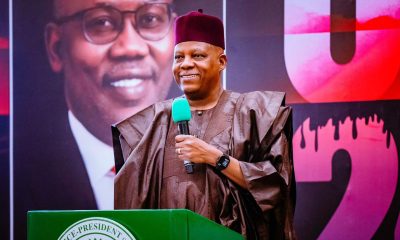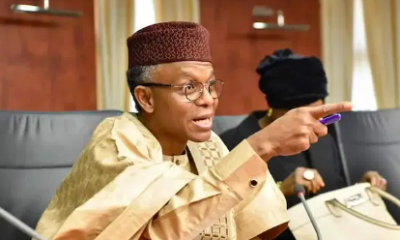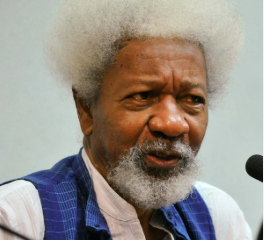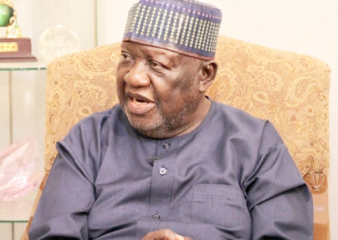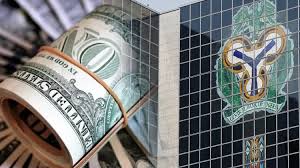By Gbenga Ogundare
The need to focus attention on the common man and invest on the poor explains why the Buhari presidency has proposed a N500 billion for social investment in the 2016 budget.
In a News Release issued Sunday, the Senior Special Assistant, Media & Publicity in the Office of the Vice President, Mr. Laolu Akande disclosed that at no time in the nation’s budgetary history has the federal government made a specific vote of such volume for social welfare.
“Even economic historians now say that not only is the half a trillion Naira vote unprecedented, but it is also the greatest service ever done to the Nigerian state and people by any federal government administration,” Akande said.
ALSO: Lets’ fix dollar official rate at N240 – Rewane
He noted that the six social safety plans would reduce high levels of poverty and vulnerabilities, while also increasing Nigeria’s Human Development Index on the global UN rankings.
“The President’s vision is to increase investments in human capital to guarantee security for all, employment and improved well-being of the people,” the media aide added.
He disclosed that the presidency is aware that past attempts to address poverty have suffered because of insufficient political will, presence of various uncoordinated initiatives and poorly targeted beneficiaries among other factors, and is working to avoid the pitfalls.
The Senior Special Assistant said for the Conditional Cash Transfer, CCT, where one million extremely poor Nigeria will receive N5000 monthly in 2016, the money would be paid directly to the beneficiaries through a payment system that is being worked out.
ALSO SEE: Nigeria is China’s main trading partner in Africa, says diplomat
He said World Bank and the Bill Gates Foundation are collaborating with the presidency to develop an efficient payment system. All together about N60 billion has been estimated to be paid out to extremely poor Nigerians. And the implementation of the programme starts once the budget is passed.
In fact, Akande disclosed, that there would also be direct payment in the Homegrown School Feeding Programme.
“In the case of the CCT, those one million poor Nigerians would be paid directly, while in the case of the Homegrown School Feeding, the suppliers of the meals to the primary school pupils would also be paid directly by the federal government. There would be no middle agents involved official or private,”
according to Akande.
The media aide observed that the recipients of the CCT would not only meet the conditions of their children participating in immunization and school enrollment but also boost the economy as the money would boost consumer spending in the economy.
He stated that regarding the Homegrown School Feeding programme, the federal government will start a pilot scheme in selected states once the budget is passed. An estimated N96 billion is being proposed to be spent on the Homegrown School Feeding this year.
ALSO SEE: Lets’ fix dollar official rate at N240 – Rewane
The one-meal-a-day programme is also being supported by the Imperial College in the UK through one of its agencies, Partnership for Child Development, PCD.
According to Akande, the Homegrown School Feeding will not only feed the children and help their learning significantly, but it would also boost the local economy of the states and the local communities.
The Buhari presidency has four other social investment plans, including the 500,000 direct jobs, where unemployed graduates would be trained and hired to become volunteer teachers in their communities while looking for jobs in their chosen profession.
There is also a Youth Employment plan that would take 370,000 non-graduates youths through skills acquisition and vocational training programmes. Like the teaching jobs, the selection of beneficiaries for this scheme would be done on states and FCT basis, opened to all Nigerians of different shades.
For small scale traders, artisans and market women, there is the Micro Credit scheme where one million Nigerians would get a one-time soft loan of N60,000
each through the Bank of Industry.
And finally there is the Free Education plan for students of Science, Technology, Engineering & Mathematics, STEM, where government will pay tuition for 100,000 students.

 Health6 days ago
Health6 days ago
 Entertainment1 week ago
Entertainment1 week ago
 Crime6 days ago
Crime6 days ago
 Education1 week ago
Education1 week ago
 Health1 week ago
Health1 week ago
 Comments and Issues7 days ago
Comments and Issues7 days ago
 Football1 week ago
Football1 week ago
 Latest7 days ago
Latest7 days ago


